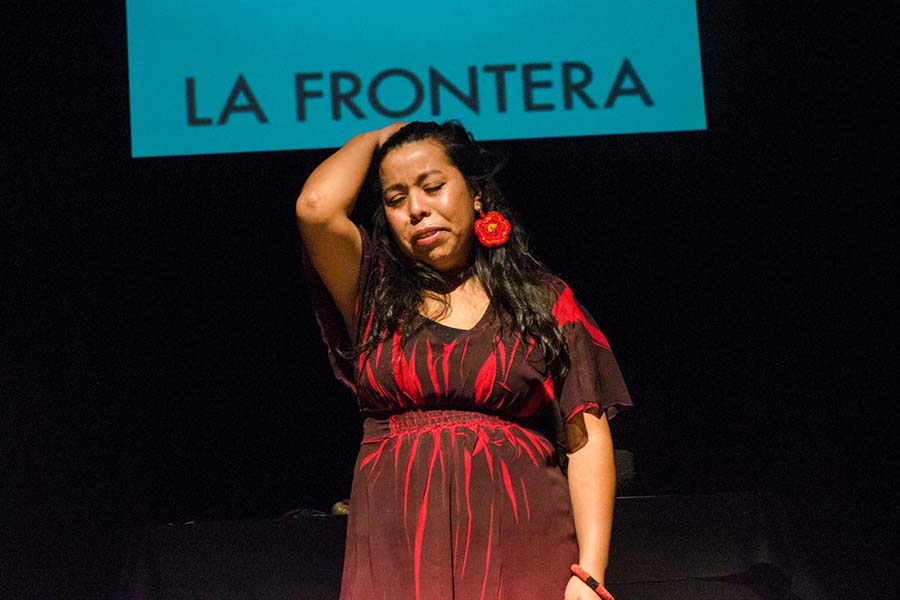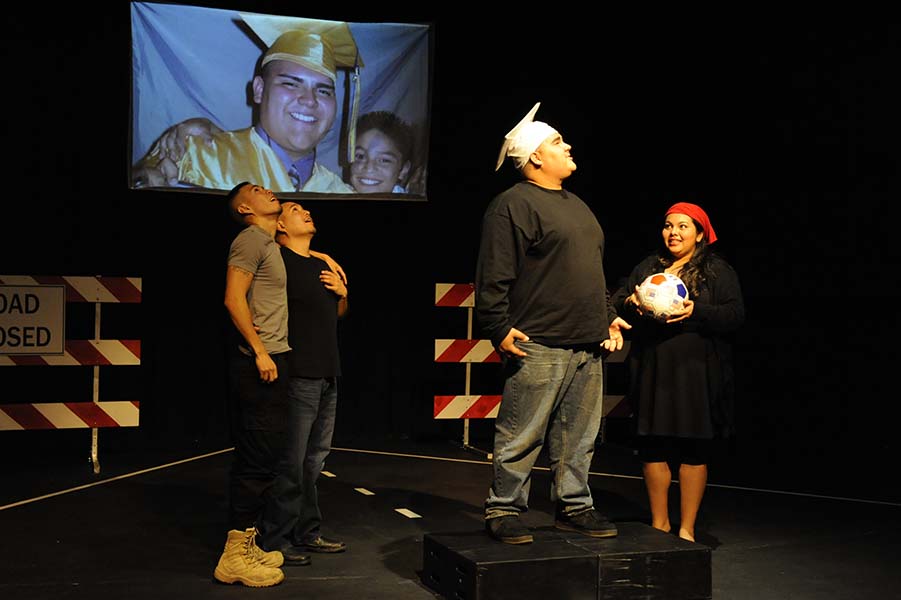In January, ahead of President Trump’s inauguration, Boulder, Colo., declared itself a sanctuary city. In fact, Boulder County has been protecting its undocumented immigrant population since before uncertainty arose surrounding federal immigration policies.
For example, district attorney Stan Garnett holds meetings as part of his Immigration Protection Initiative to educate immigrants on local government policies and to familiarize the immigrant community with local law enforcement officials.
On April 30, Garnett and a group of law enforcement officials, including police sheriffs and public safety officers, will take their advocacy one step further: They’ll perform monologues written by a group of immigrants with Motus Theater.
“I think this is a great way for those of us in law enforcement to show people in Boulder County that we care, that we want to know what their life experience has been, and that they can trust police,” says Garnett.
The April 30 performance will be an expansion of Motus Theater’s projects Do You Know Who I Am? and the SALSA Lotería Monologues series, for which immigrants write and perform their personal stories. Only this time, the law enforcement officials themselves will read the immigrants’ narratives.
“The idea of this performance is to engage in a national conversation to disrupt the association between criminality and documentation status,” Motus Theater executive director Kirsten Wilson says.
Victor Galvan, who first came to Motus Theater in 2002 by way of the youth immigrant organization Dreamers United, will be onstage this weekend as his monologue is read aloud by Lafayette police chief Rick Bashor.
Putting together the monologues “was a very dramatic and emotional experience,” says Galvan. “But it helped us lock in the gravity of our story and the human aspect that we brush off because we need to survive—we don’t take moments to cry out our pain,” he adds.
With this presentation, Galvan and his fellow immigrants want to start a conversation about how the Trump administration is pressuring the local government to enforce federal immigration laws. “It’s not so much that they are telling our stories out of pity,” says Galvan. “More than anything, it is to stand alongside of the work that we’ve already been doing.”
Each immigrant will be onstage as their story is read by an official in uniform, and then they each will speak the last line of their story. Throughout the readings, images of the writers will be projected.
Wilson credits the young undocumented immigrants who bravely share their stories as leaders in the national debate about immigration law in the U.S.
“These undocumented immigrants are on the front line everyday,” says Wilson. “It is their courage that is changing this movement, but we need back up right now. To have these leaders in law enforcement and public safety having [immigrants’] backs at this particular time is essential to the safety of all people in our community.”

District attorney Garnett will be reading a three-page story written by Ana Casas, who came to the States when she was 11 from Mexico and who stayed in the country under Deferred Action for Childhood Arrivals (DACA), a policy instated by former President Barack Obama that allows children who were under the age of 16 when they arrived to apply to stay in the country if they are enrolled in school.
Casa’s story is about her brother, who was deported when he was 18 for marijuana possession. The monologue reads, in part:
But how many of you at 18 made mistakes? Think about it. How many of your sons, brothers, sisters, cousins, nephews did something stupid as a teenager and got in trouble with the law? How would you feel if for that crime they were sent away forever to a dangerous city in a country they didn’t even know—to lose everything and everyone they love? Does the crime equal the punishment? Is that justice? Tell me—is that justice?
Having the district attorney in the spotlight questioning the justice system next to Casas will be a powerful exchange, says Wilson. And while Garnett admits that as a cop he isn’t “great at rehearsal,” he says his work in the courtroom is akin to performing in front of an audience.
“This will be a more heartfelt effort on the part of law enforcement to connect with the experiences of the immigrant community because one of the real problems is that many of these folks live below radar,” says Garnett. “They sort of survive for many years by not telling their stories or bringing attention to their experience. This is going to be an opportunity to bring some of that out into the sunlight.”
The one-day event is sold out with a wait list, and so Motus Theater will be live streaming the performance on its Facebook page. The presentation will also be filmed so that law enforcement officials can share the video with their precincts and communities for educational outreach.
“Our community, even though there are so many myths about immigrants, has really given a lot to the U.S,” says Galvan. “This story speaks so much to that. Not only are our neighbors standing beside us, but our law enforcement officials are standing beside us.”


